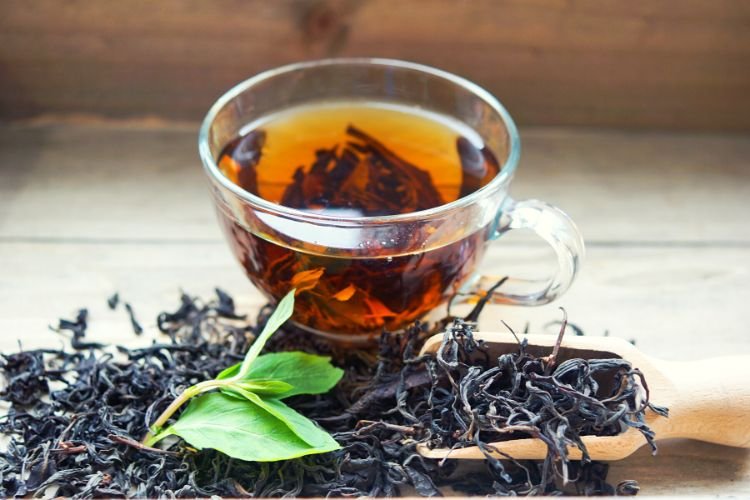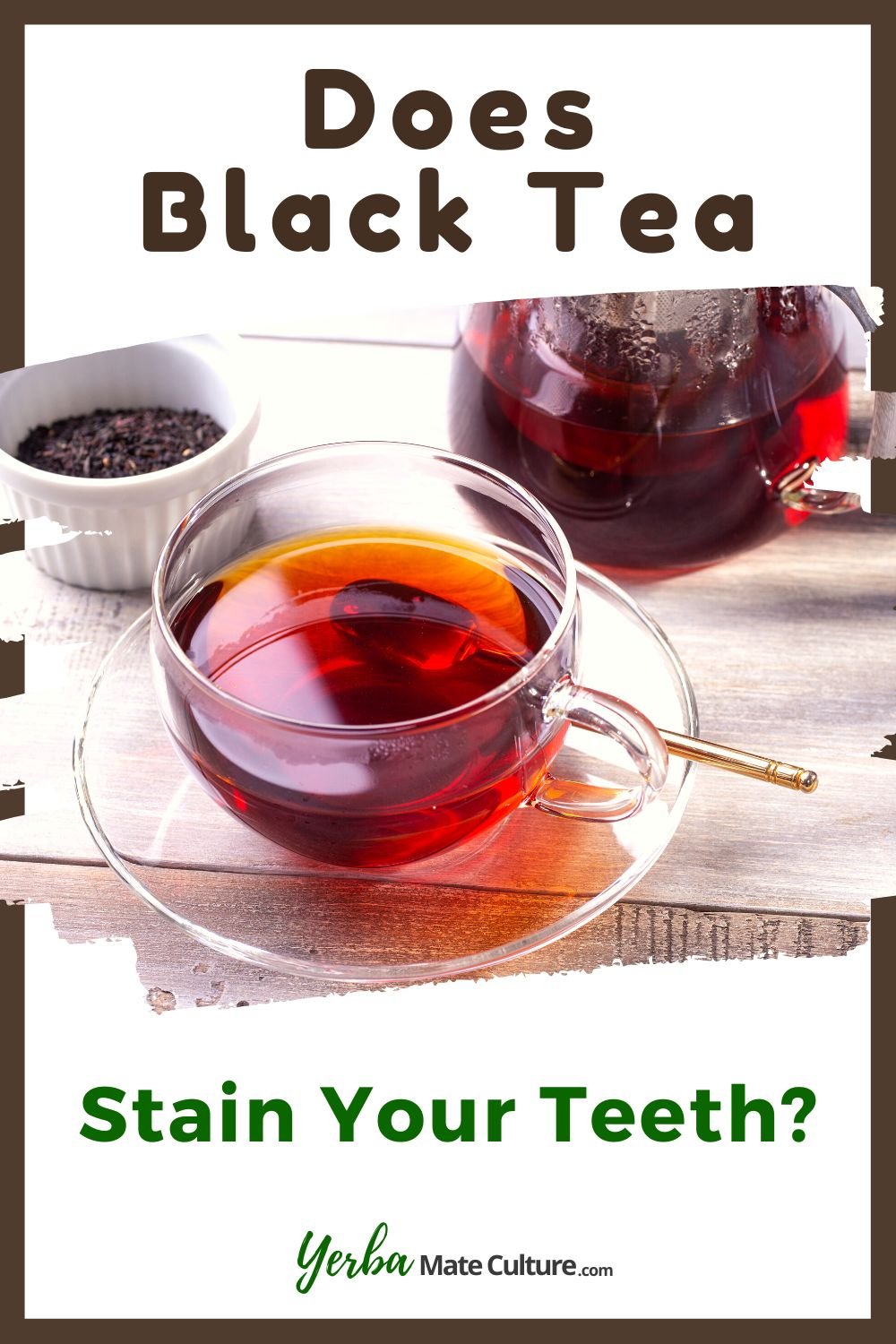Black tea is delicious and nutritious. Packed with antioxidants and minerals it’s a healthy choice.
But it has pros and cons for your pearly whites. Without proper oral care, black tea can stain your teeth.
Nonetheless, black tea also has beneficial properties that even dentists can’t ignore.
So if you drink it thoughtfully and take good care of your teeth, you can enjoy black tea and still flash a Hollywood smile!
Does Black Tea Stain Teeth?
While drinking black tea can cause extrinsic tooth stains, the good news is that these types of stains can be removed.
They are surface tooth stains that respond quite well to regular brushing, dental clinic cleaning procedures, and whitening toothpastes.
Later in this article, I will also share some tips on how to reduce the formation of stains while sipping on your tea.
What Causes Tooth Stains?
Three compounds give food and beverages their staining power — acids, chromogens, and tannins. Teas may contain all three.
Acids
Acids erode tooth enamel, creating soft spots that absorb stains more readily. But black tea is only mildly acidic. The biggest culprits are soda pop and coffee.
With an average pH of around 5.5, black tea is a less acidic sip than the average joe. Some fruit and herbal teas, however, can be almost as acidic as lemon juice. Sour-tasting teas are likely high-acid.
Chromogens
Teas also contain chromogens, pigmented compounds that give foods their color. They have an unfortunate affinity for tooth enamel, adhering to the surface of your teeth where they wreak havoc.
Black tea has surprisingly few chromogens compared to beverages like red wine and coffee. Blends with colorful fruits or herbs, however, have more staining power, especially if the additions are more acidic than the tea. Think hibiscus.
Tannins
Black tea is rich in tannins, the bitter, phenolic compounds that give tea its characteristic taste. Packed with antioxidants, tannins have valuable medical properties. But they also give chromogens more sticking power.
Why Can Black Tea Stain Your Teeth?
Plain black tea is mildly acidic and tannin-rich — and it also contains some chromogens. Like any food or drink with these characteristics, it can yellow your teeth.

The microscopic study of tooth enamel exposed to beverages known to cause stains shows that black tea and red wine have the highest staining potential followed by cola and coffee. The tea stains, however, were particularly resistant to routine brushing.
Green teas are somewhat less aggressive, but they still contain enough acid and tannins to leave lighter yellow or gray stains.
How to Prevent Black Tea From Staining Your Teeth
Here are a few useful tips to minimize the discoloration of your teeth when drinking black tea:
Add Milk: The casein in milk creates a buffer that prevents teeth staining. According to a 2014 study adding milk to tea can be as effective as vital bleaching treatments.
Avoid Contact With Teeth: Try to minimize contact with teeth when enjoying your tea — don’t swish it in your mouth or hold it there for a long time. If you are drinking iced tea, use a stainless-steel straw.
Gargle With Water After Drinking Tea: Rinsing your teeth with water right after drinking tea helps to remove tannins and chromogens from their surface.
Brush Regularly: Brushing your teeth every morning and evening helps prevent the chromogens from permanently sticking to your teeth. Consider using a whitening toothpaste.
One option is to simply choose a tea that doesn’t stain teeth. It might be difficult if you are used to always drinking black tea, but you can start by replacing one cup of black tea per day with something like white tea or ginger tea.
Is Black Tea Good or Bad for Teeth?
Black tea stains teeth, but did you know that it may also prevent cavities?
Multiple university-led studies confirm that the same polyphenols in tannins that help chromogens stick to enamel also suppress the growth of plaque-causing bacteria.
Tannins also improve the acid resistance of enamel, and research suggests they prevent oral cancer by protecting the DNA of oral mucosa cells. The same plaque that causes tooth decay is linked to oral leukoplakia, precancerous patches affecting the soft tissues in the mouth.
Most black tea is also high in fluoride, a natural element that strengthens teeth and prevents dental caries.
How much different brands contain depends on factors from what the tea is watered with to the soil it’s grown in, but some boast up to 3.73 parts per million (ppm) versus 1.53 ppm for wine and 0.81 ppm for tap water.
What if you like your tea sweet or with milk?
Milk and sweeteners, however, may modify the effect of black tea on your dental health.
Milk is naturally sweet, but it buffers stain-causing acids, and it contains calcium and Vitamin D — essential nutrients that strengthen tooth enamel.
Sugary sweeteners, such as white sugar, syrups, and molasses, contribute to weight gain and cavities.
But xylitol, a low-calorie alternative sweetener, kills oral bacteria by boosting saliva flow and stabilizing pH levels. Neutral-tasting, it’s a good choice for black tea.
You can also consider using high-quality manuka honey to make a tea that is sweet and good for your teeth.
According to a 2010 study manuka honey can kill harmful bacteria in the mouth and help prevent plaque.
The Final Word
Black tea can be both good and bad for your teeth depending on how you consume it and how well you take care of your teeth.
Short of water, it has fewer disadvantages than most beverages.
The best way to prevent staining is to brush as directed and rinse your mouth out with water between cups — advice that stands for any food or drinks known to cause tooth discoloration.
As with most things in life, it’s about finding the right balance!
Save on Pinterest:






